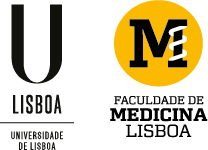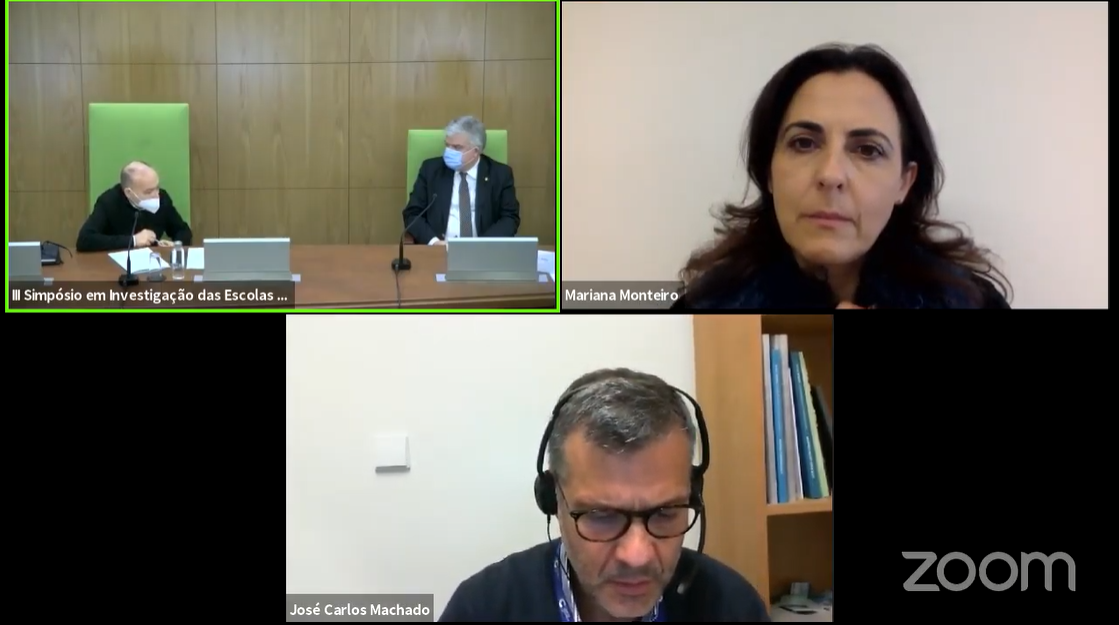
Professor Fausto J. Pinto was the host and first speaker at the 3rd Research Symposium of the Portuguese Medical Schools, organized by the CEMP and broadcasted via streaming on the FMUL YouTube channel.
In the lecture that marked the Opening Session, Professor Fausto J. Pinto - ending this year a cycle as the head of the CEMP Presidency - addressed the challenges of “Medical Teaching in Time of Pandemic”, starting by analysing the chronology of a pandemic that started in China and that in a few days spread to the European continent.
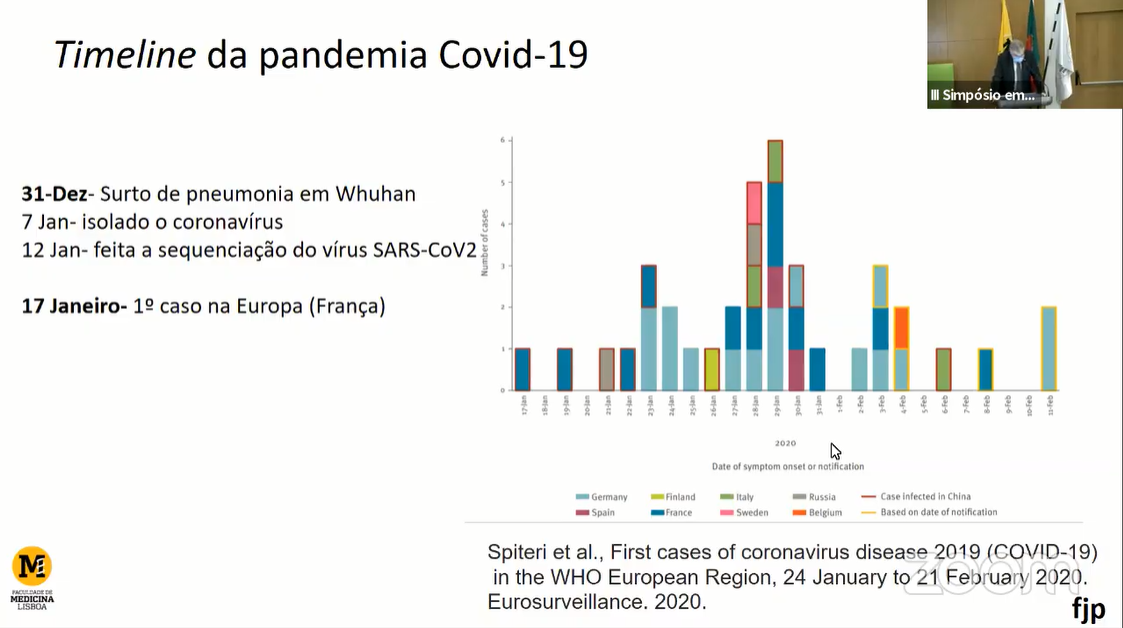
Fausto J. Pinto highlighted the decision, taken on 9 March, to close the Medical Schools and the strong intervention of the CEMP, which had a “civic and active participation”, issuing recommendations to society with great repercussion in the national media. and that hit the news across borders.
The Professor also emphasized the pedagogy of the CEMP in the face of a pandemic that devastated the world and imposed new and important habits, one of which the mandatory use of a mask, which was strongly and very early defended by the CEMP, proving to be decisive in combating Covid-19. The "pressure", based on scientific experience and knowledge, publicly expressed by the CEMP was, in the opinion of Fausto J. Pinto, decisive for "the excellent results that the country obtained at that time".
The implementation of distance learning, “although not a novelty”, as explained by Fausto J. Pinto, has necessarily become the only viable solution, with the Professor highlighting the commitment of the entire FMUL community that, in 24 hours, implemented a new teaching model, committing efforts “to minimize the impact of the suspension of face-to-face classes”. In addition, "with the massive participation of students, it was possible to overcome some limitations", he stressed.

And because “opportunities arise from adversity”, Fausto J. Pinto pointed out the main advantages or strengths, as well as the less favourable points of distance learning. As strong aspects, he considered the improvement of lecturers' skills in the field of new technologies, the creation of resources, educational and evaluation materials to be used for hybrid forms of teaching and the experience of teleworking. "The strong participation in Zoom classes was a pleasant surprise", said the Professor, highlighting the exemplary behaviour and the contribution of students to the success of a sudden but essential restructuring.
In turn, Fausto J. Pinto believes that the weak points are based on the “interruption/reduction of practical teaching”, emphasizing the “explicit and implicit” aspects of medical learning; "The segregation of students through virtual teaching, the limitations of digital assessment for relationship or clinical skills, and the limited participation of students in classes without attendance control". “These were some aspects that were compromised during the distance learning period and it was a challenge to address those aspects”, he said.
Then, presenting the “hybrid teaching model” implemented in this academic year, the Professor highlighted the adjustments, namely the reduction in the number of students and lecturers, which were made to ensure the continuity of clinical and practical teaching, also highlighting the commitment established with the students “whereby the Faculty has ceased to be a space for socializing to be just a space where they have classes”.
Fausto J. Pinto also recalled the CEMP's recent appeal to hospital board of directors, reiterating “the importance of integrating students in their activities”, in order “not to compromise the next generation of doctors”. “Affiliated hospitals are an essential tool to guarantee practical clinical teaching and what we sought was, in a pedagogical way, to reinforce the importance of maintaining this teaching aspect. Nothing substitutes contact with the patients”, he stressed.
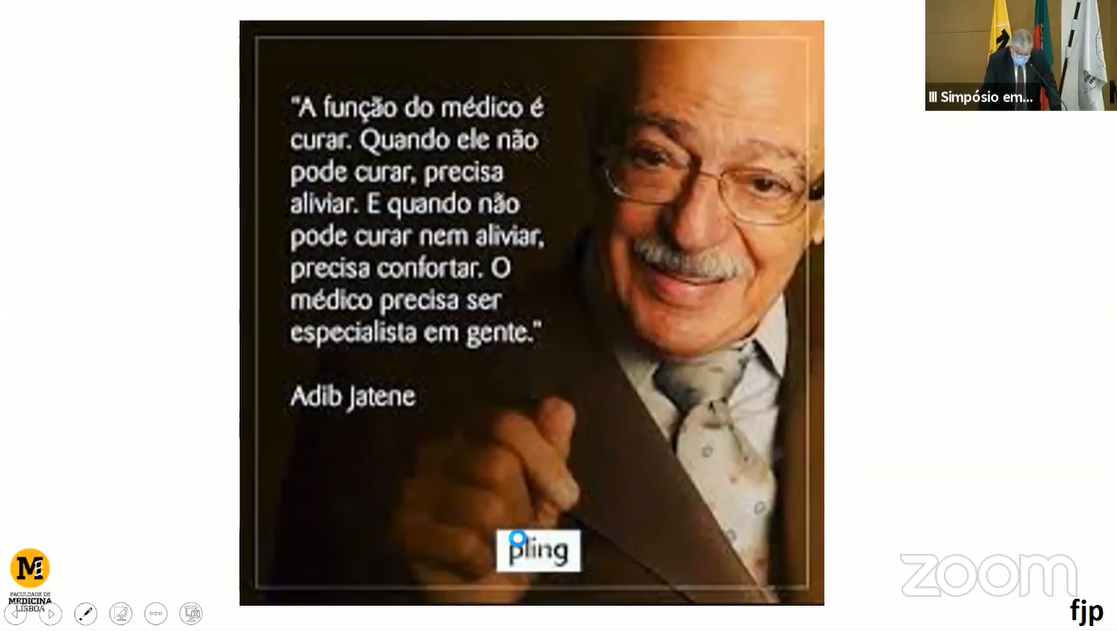
In the inaugural lecture of the Third Research Symposium of the Portuguese Medical Schools, Fausto J. Pinto attributed a prominent role to the “Hippocrates’ concept of being a doctor”, recalling the importance of the “basic principle of the doctor-patient relationship in the training of young medical students, so that the next generation is up to the challenges they will face in the future”.
In a final note on “the light at the end of the tunnel” that glimpses with the reality of the vaccine to face Covid-19, Professor Fausto J. Pinto said that “there is still a long way to go”, so “we cannot drop our guard". In addition to the challenges regarding “training in medical schools”, another pandemic must be faced, “the fake news pandemic”, to which Fausto J. Pinto raised the awareness of the medical and scientific community, in the sense of continuing to fight misinformation.
Last but not least, a note about the strong “collaboration of colleagues from the CEMP over the past few months, in the mission of continuing to offer modern medical education in line with our ambitions”, reiterated the Professor .
Fausto J. Pinto thus ends a cycle of “consolidation” at the head of the CEMP, marked by the challenges of the pandemic, in which medical schools have shown resilience and overcoming.
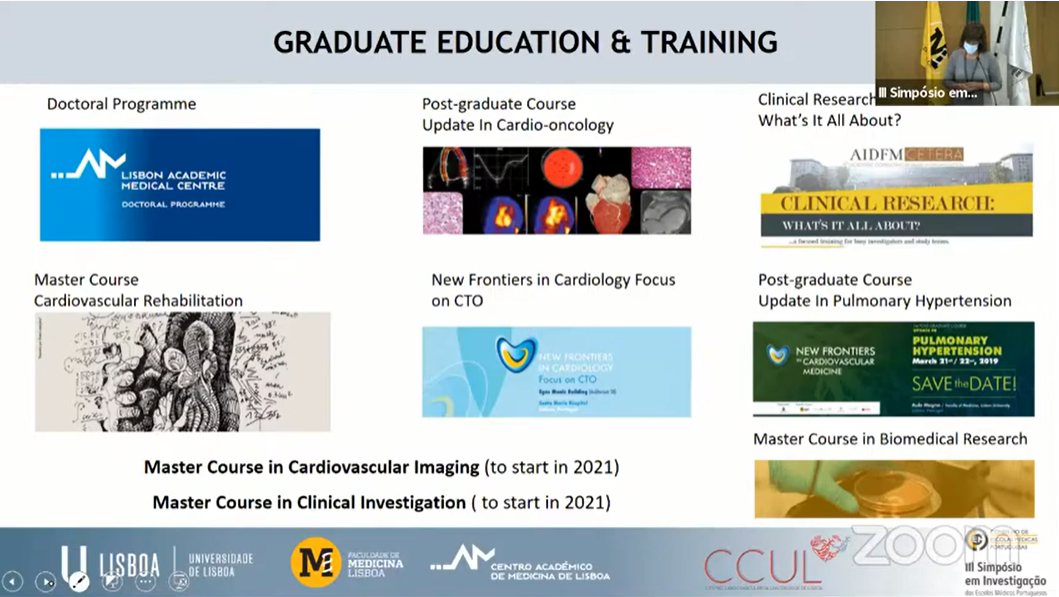
At the Third Research Symposium of the Portuguese Medical Schools, FMUL was represented by Professor Susana Constantino, who brought us an interesting presentation on the research conducted at the CCUL – Cardiovascular Centre of the University of Lisbon/CC Well, which includes 107 researchers distributed by 13 research units.
Susana Constantino highlighted the research units that recently joined the CC Well, namely, Cardio-oncology, Cardiovascular Therapeutics and Pharmacology, Cardiovascular Rehabilitation and Exercise, as well as the important synergies created with some laboratories, with the Northern Lisbon University Hospital Centre and also, with the Veterinary Hospital OneVet, “that allow us to do what we want, to be a multidisciplinary science of excellence”, she stressed. "We can also see excellence in the financing of competitive projects and in the last 5 years many projects and clinical studies have been conducted", said the Professor, mentioning "the 98 studies, integrating 1700 patients", carried out this year.
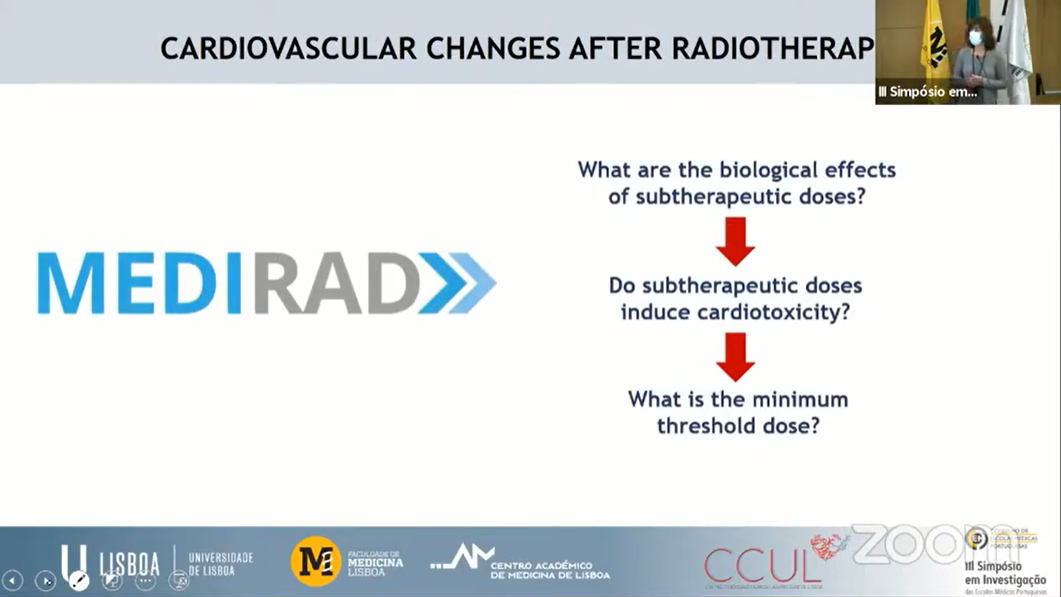
To demonstrate “the importance of translational research”, Susana Constantino highlighted one of these projects, reiterating the importance of collaboration established inside and outside borders. “Because we all agree that research is fundamental to innovate and modernize, to allow us to have an education of excellence, researchers at the Cardiovascular Centre of the University of Lisbon actively participate, not only in undergraduate education, but also in postgraduate education, supervising Ph.D. students, doctors and non-doctors who are enrolled in the Doctoral Programme of the Lisbon Academic Medical Centre”.
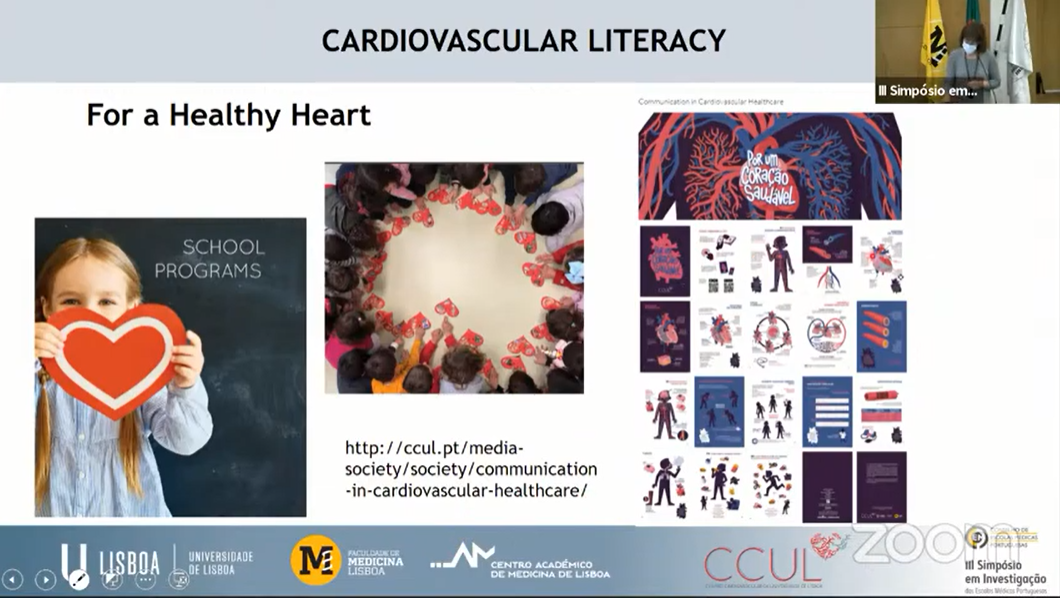
The main objective of this session was to reflect on the importance of the research carried out in the Portuguese Medical Schools. Each institution made its presentation, sharing experiences that enrich the culture and consolidate the vision of the CEMP. Check the session here
